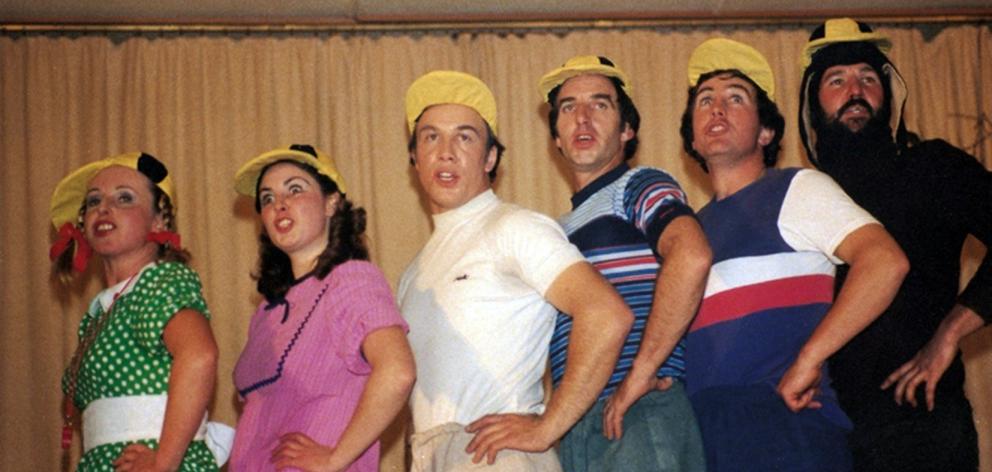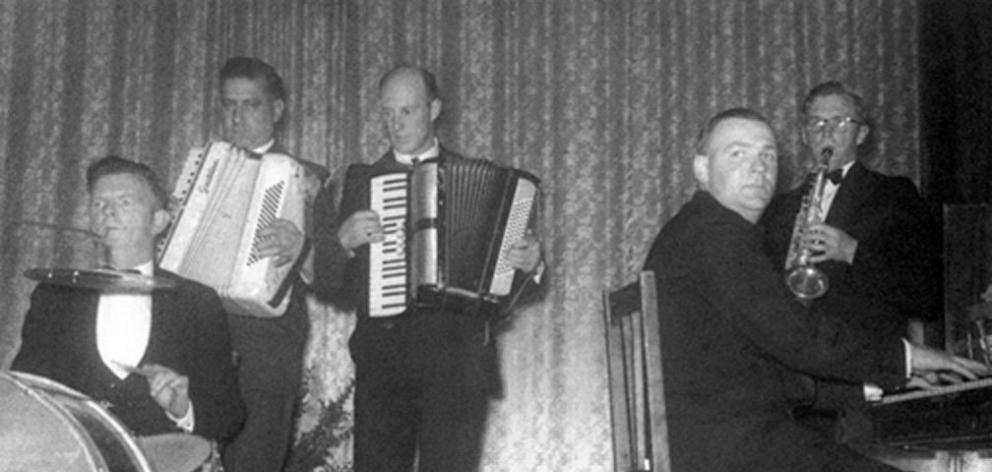
She’s an old friend from my city days and her time is filled with attending concerts, art galleries and book launches. Even poetry readings. She would not survive in the country where, I tell her, "We make our own amusements".
She scoffs and reminds me that I sound like the old boy in the Peter Sellers sketch who rambles on about his Edwardian childhood "before the invention of the cinematograph and the gramophone" and describes the joys of simple fun like setting fire to the policeman.
If you’ve never heard it, you’ve missed a brilliant piece of comedy.

What impresses me most is just how busy country people were a generation ago.
I’ve come across minute books for the Patearoa Musical Society which from the 1950s to the 1980s staged productions which involved almost every able-bodied person in the district.
Music was provided by locals, many of whom also played in dance bands which could be found in country halls almost every Saturday night.
In the midst of all this the Patearoa Drama Club, involving much the same people, took part in various one-act play festivals.
Down the road at the Styx, a group also produced plays.
Back then, the University of Otago adult education department had a library of play scripts: several of these have ended up in the musical society archive.
The musicals were rehearsed and staged during the winter months when things were less frantic on the farm and the minutes reveal that old-timers I’ve always pictured as solid men and women of the land were, in fact, also enthusiastic supporters of the arts.
The man who took prizes for his wool clip turns out to be an accomplished musical director and the women who must have had little spare time from coping with the multiple tasks of farmers’ wives were sometimes actually producing almost the whole show.
A random example from 1961 tells the tale.
Wild Violets had a cast of 20 and a back stage crew of a dozen or so. That was a fair chunk of the local population but the hall still got full houses.
Not only that, but the tradition was also to go on tour and Wild Violets toured to Ranfurly and Omakau.

There are blokes listed in the programme who I bump into as old men playing bowls.
Many were enlisted for backstage duties, often after a hard day on the rugby field.
School teacher Bill Gale, better known as a cricketer, struts his stuff as "an English gentleman" and a well-known retired farmer who is still with us has the male lead and in all my time in Patearoa I’ve not heard him sing.
Across the board, there’s far too much hiding of lights beneath bushels in this place.
Many of the cast, though, are from a generation which has disappeared and I know only their sons and daughters. These are names that can be found in the annals of the township’s farming, rugby, cricket, hockey, bowling, golfing and just about every other community group.
Gibson, Carr, Aitken, Herlihy, Hall, Becker, Hore, Thurlow, O’Neill, McSkimming, Greer and a dozen others are a core membership and each year, it seems, they were able to recruit a small army of locals to fill the minor roles and even persuade young bucks to be part of the "men’s ballet".
Even those who spent only a short time in Patearoa were not immune from the press gang.
Renowned artist Michael Smither had a hand in the backdrops and the tattered remains of scenery recently found in a farm outbuilding may well be his work.
Some of the last shows included young people who are still around, even a former MP.
A city play-goer may have a drink at interval but when the Patearoa Musical Society was in action the after-show supper (no doubt gargantuan) was part of the night out.
So, what went wrong? Did television and rural depopulation play a role in the demise of local live theatre? Did the new generation simply bury themselves in their computer screens?
Live entertainment pops up now and again in the country.
The Ranfurly people stage an annual show and there used to be an old piano at the Patearoa pub which got a pounding now and again but, as Peter Seller’s old codger lamented, "times change, but I’m not sure always for the better".
■Jim Sullivan is a Patearoa writer.













